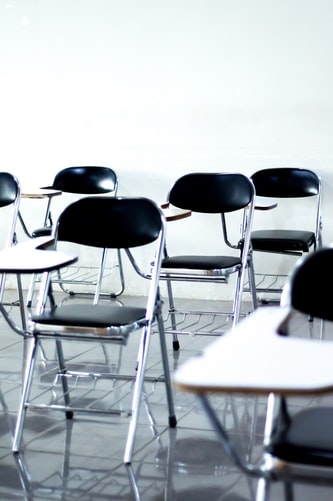News
Solon wants overhaul of K-12 system

MANILA – A lawmaker at the House of Representatives on Friday called for an overhaul of the country’s curriculum and a focus on functional skills, critical thinking, and good citizenship.
Albay Rep. Joey Salceda made the call in reaction to a World Bank report that found that more than 80 percent of children in the country “do not know what they should know in school.”
The report showed that across the three global assessments, only 10 percent to 22 percent of Grades 4, 5, and 9 students in the Philippines posted scores “at or above minimum proficiency.”
“We will get through this pandemic. Economic crises come and go. But literacy and its permanent effects on growth and intergenerational poverty stay. That is why this report is alarming. Unless we make drastic changes to this situation, our actual economic growth will always be much less than our potential. And poor kids will likely have poor families and have poor kids,” Salceda said.
The World Bank said there is a “crisis” in Philippine education, “which started pre-Covid-19 (coronavirus disease 2019)” and has been “made worse” by the pandemic.
The problem is “fundamental”, Salceda said, noting that learners are stunted and undernourished, learning materials are substandard, the curriculum is impractical, teachers are overworked, and schools are underequipped.
He said the proposed Comprehensive Education Reform Agenda, which is a series of 10 bills on education policy reform, would solve these problems.
The bills, he added, propose universal school meals, an overhaul of the K-12 system, and a renewed focus on technical and vocational (TechVoc) skills and improved school facilities.
Salceda stressed the need for a joint executive and legislative effort on education to address the challenges on education exacerbated by the pandemic and prevent the lifetime consequences of poor education outcomes.
He noted that due to the delays in the reopening of schools and for those who skipped school this year, the estimated costs would be 0.5 percent to 0.7 percent of this year’s gross domestic product (GDP), and 0.3 percent to 0.4 percent of the GDP for the entire productive life of this generation of students.
“Over the past five years, joint priorities of the Executive and the Legislative were focused on economic and fiscal reform,” Salceda said. “But education policy is long-term socioeconomic policy. The Constitution binds us to giving education the highest priority. It’s time we sit down with the stakeholders and come up with something the next administration can start with.”
He said Congress should push forward an education reform agenda that “we can realistically pass” within this year.
It must include an investment in learners, better quality of education materials, better facilities, and perhaps an overhaul of the impracticalities of the current system, with a renewed focus on TechVoc skills, he added.
“The World Bank observation points out that our learners don’t know what they should. The other side of it is much of the curriculum is impractical. The curriculum tries to be a mile high, but it’s just an inch deep,” Salceda said.
Reforms to be introduced
Meanwhile, Presidential Spokesperson Harry Roque said he is confident that Department of Education (DepEd) Secretary Leonor Briones would study and discuss ways to improve the quality of education in the country.
“Huwag po kayong mag-alala, pag-aaralan po natin kung ano ‘yung sinasabi ng report at titignan po natin kung paano natin mababago ‘yung curriculum, lalung-lalo na sa panahon po ng pandemya (Do not worry. We will study what the report has said and we will check how we can change the curriculum, especially amid the pandemic),” Roque said.
He added that DepEd is introducing reforms in education to allow students to adapt to the new normal.
“We are on blended learning po. We utilize modules. We utilize TV, radio, as well as computer-aided forms of educational material po. But I’m sure the process of adapting to the new normal continues and the DepEd, the Department of Education, will continue to introduce innovations,” he said.
On June 19, Duterte thumbed down DepEd’s proposal to resume face-to-face classes even in areas with a low risk of Covid-19 transmission due to the presence of the more infectious Delta coronavirus variant.
Amid the pandemic, new teaching styles, such as online learning, modular learning, television and radio-based instruction, and blended learning, which is a combination of two or more methods of learning, have been introduced.





















